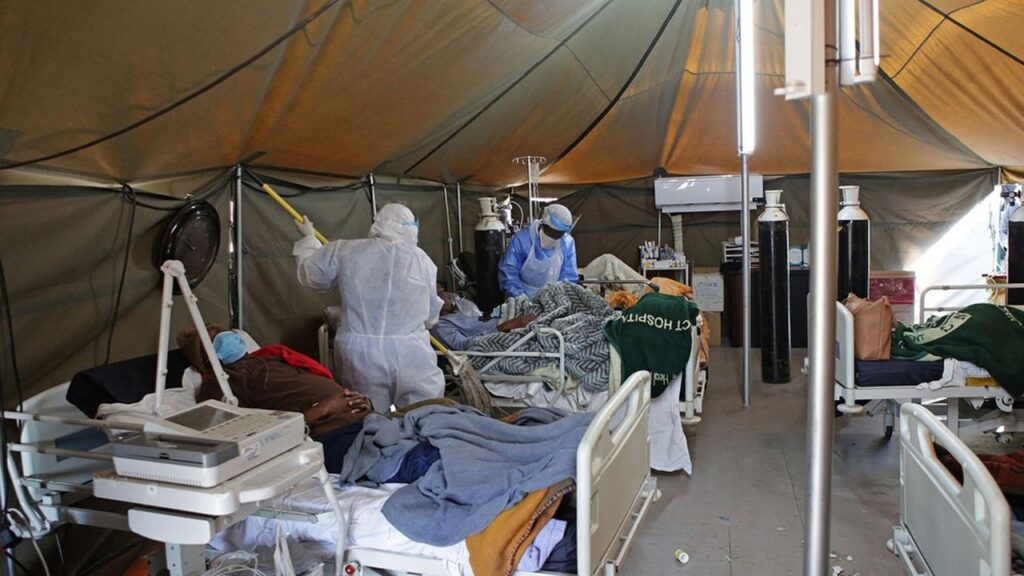Senior officials from the WHO regions of Africa and the Eastern Mediterranean have convened in Chad, the country hosting the greatest number of Sudanese refugees, to evaluate the critical health needs of those impacted by this escalating humanitarian crisis.
Millions of people are fleeing the war and famine in their native Sudan.
The mission aims to strengthen cross-border humanitarian operations in Sudan’s Darfur states and provide critical medical care to affected communities. It seeks to improve the effectiveness of WHO operations in Chad, Sudan, and the offices of the African Region (AFRO) and the Eastern Mediterranean Region (EMRO).
“As the WHO Representative in Sudan, witnessing such a level of suffering among the refugees is almost unbearable. They recount their experiences of violence, loss, and famine. Given the severe degradation of the health system — 241 health facilities in central Darfur have been damaged — the spread of diseases, and the looming famine, it is increasingly difficult to meet the growing health needs. If we do not act urgently, we will see an increase in morbidity, mortality, and a worsening impact of the current conflict on all generations,” said Dr. Shible Sahbani.
The rate at which starvation is spreading is terrible. According to the Integrated Food Security Phase Classification, Sudan is currently experiencing the highest levels of acute food insecurity ever documented in the nation. The number of individuals experiencing severe acute food insecurity has risen from 17.7 million to 25.6 million, a 45% increase over the previous six months.
One of the WHO’s interregional objectives is the expansion of cross-border activities into Sudan, especially in Darfur, which has been largely cut off from humanitarian relief. However, these efforts are severely hampered by the parties involved in the conflict’s refusal to grant access and the scarcity of funding (only 18% of humanitarian efforts in Sudan are supported). Opening the Adré border crossing between Sudan and Chad to facilitate the delivery of humanitarian supplies might save a great number of lives.
The WHO Representative in Chad, Dr. Anya Blanche, stated: “The Chadians have been incredibly hospitable, offering food, water, and shelter to arriving refugees, but the needs are immense. Our priority is to create integrated health systems for refugees and host populations that not only address immediate medical needs but also improve Chad’s healthcare capacities in the long term so that the population’s future does not depend on aid.”
The population of Adré, a tiny town in eastern Chad that was formerly home to 40,000 people, has increased sixfold. Since the crisis started in April 2023, more than 600,000 Sudanese and 180,000 Chadians returning home have arrived in Adré.
The majority of refugees have endured multiple displacements as the violence that started in Khartoum spread to other parts of Sudan. They experienced sexual assault and rape, crossed the border with bullet wounds, and trekked for days without food for months.
By the middle of April, when the conflict’s first anniversary fell, around 8.7 million people had been forced from their homes. This number climbed by almost 45% in only three months, reaching an estimated 12.7 million displaced individuals as of now. Two million of the over 10 million internally displaced people in Sudan have sought safety in six neighboring countries.
Dr. Thierno Baldé, coordinator of the WHO Regional Emergency Center for West and Central Africa, stated: “We witness the suffering of the people here. They have nothing and are exposed to many diseases, including epidemic-prone diseases. Humanitarian actors are present, but funding is minimal. At WHO, we work collectively between the two regions to make our operations as resource-efficient as possible.”
The present rainy season, unstable housing, and appalling living conditions have many fearing that diseases like cholera and malaria may spread and worsen the situation.
The Director of Emergencies for the Eastern Mediterranean Region (EMRO), Dr. Richard Brennan, emphasized the need for global solidarity and attention.
He said, “This constantly evolving catastrophic crisis receives very little attention from the international community. We can do more, and we certainly must do more. Peace, access, and resources are essential to protect the lives and livelihoods of the Sudanese people.”
Source: WHO



